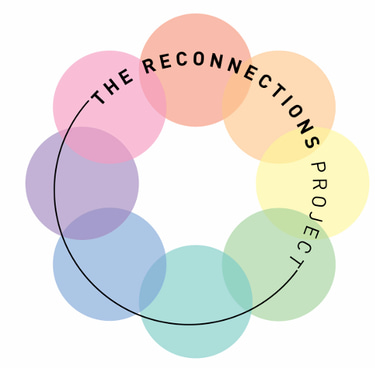Reconnecting your work self with the rest of you
Since when did we start dividing ourselves, our personalities, thoughts, feelings, identities, and beliefs in two? What impact does that have on ourselves and the work we are doing?
DIVERSITYCULTURERECONNECTING
Dr Trent Grassian
5/27/20253 min read


“Should I answer these questions in terms of my professional self or my personal self?”
We were at work, filling out a questionnaire that would categorise our personalities across four colour groups when my colleague asked me this question. I didn’t know how to answer.
In the (fictional) TV show Severance, the characters undergo a surgical procedure that divides their memories (and their lives) in two, literally creating two alternate realities of themselves: their work selves and their ‘other’ selves. While this may seem extreme, it reflects a reality that I have struggled with in my own professional career:
Since when did we start dividing ourselves, our personalities, thoughts, feelings, identities, and beliefs in two? What impact does that have on ourselves and the work we are doing?
Now, of course, there is an element where we do have to behave a certain way at work. I can imagine work being a lot more awkward if people were able to walk around in their underwear and burp and fart anytime they wanted. I also know that, when working with external organisations, we often have to try and present ourselves and our organisation in a certain way.
Nonetheless, in my experience, this has gone to an extreme, where it can be incredibly difficult to truly know those I work with (and for them to know me) and where we are expected to leave fundamental parts of ourselves outside of our work.
The impact on us
By having two distinct selves – to the point where we have to decide which ‘version’ to use to even answer a question about ourselves, it cah be difficult to truly connect with colleagues and to feel comfortable, liked, and safe at work. We are then able to have ‘work friends’, people whose work version of themselves is friends (or friendly) with our work version of ourself.
The hiding of these elements of ourselves allows for assumptions to be made, which will mirror the oppressive systems we all live within.
On one occasion, I was having lunch with several colleagues. Two of us had gotten some Ethiopian food and somehow a conversation developed about different cuisines, with one person being unfamiliar with most of the types of food being discussed. People began telling her about how she must try this type of cuisine and go to that restaurant. By not naming (or understanding) their own cultural capital, I felt incredibly uncomfortable in my own contributions to this conversation that likely reflected very real class and socio-economic differences between us.
When privileged positions are the unspoken ‘norm’, honestly speaking about ourselves, our identities, and our experiences at work can be incredibly uncomfortable and even dangerous.
What would it mean to truly bring ourselves to work? How would this help us to celebrate and acknowledge our own diverse range of experiences, identities, and opinions? How would this help us actually make our working cultures and environments inclusive and welcoming?
The impact on our work
This has, for me, been most readily apparent in the multiple times I have been a part of Equity, Diversity, and Inclusivity (EDI) working groups, where the reality of our very real lived experiences and identities sits awkwardly on the edge of the conversations. These groups are formed to address issues of equity and oppression in our work environments, but their abstraction and separation from staffs’ lived experiences can keep them wholly distinct from staff members’ lived realities.
On one occasion, I was part of a EDI group formed of ten staff members. One of the main ‘issues’ we sought to address was the lack of diversity amongst staff, particularly in terms of the lack of staff members of colour. The voluntary group, almost all of whom had no experience being a part of such a group, began brainstorming things we could do and action plans.
Another colleague and I tried to express our concerns and, in doing so, had to name what had been unspoken: The entire group was white. How could we possibly be in a position to figure out what was needed, when none of us could speak to the diverse range of experiences of people of colour?
This also manifests in terms of our own beliefs and thoughts about what is right and just. How many times at work have we all been given projects or told to do something that we didn’t agree with? But, because we have a ‘separate’ professional self, somehow we can simply get on with it and put aside our true feelings.
What would it mean to reconnect with what we truly believe and apply this to what we are doing? How could we be more effective, creative, and inclusive in what we are doing?
How can you reconnect your work self with the rest of you today?
